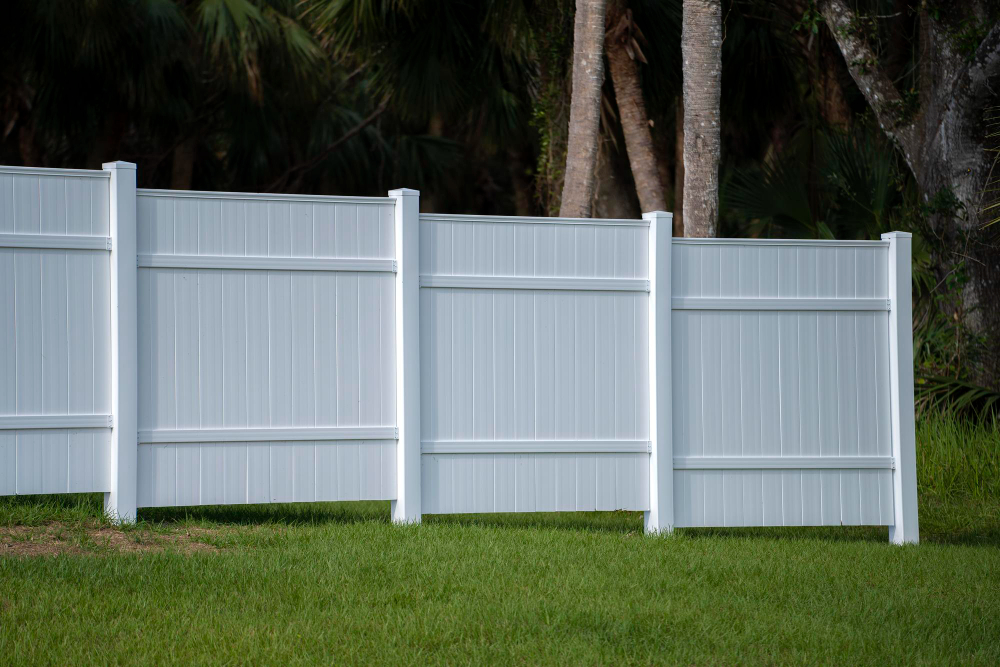The Great Debate: Wood vs. Vinyl Fencing

Choosing the right type of fencing for your property is a significant decision. It's not just a question of aesthetics; it's about long-term value, maintenance, and environmental impact. Wood and vinyl are two materials with distinct properties and appeal, each lending itself to particular needs and preferences. Let's dive into the wood versus vinyl fencing debate, unpacking the pros and cons and aiding you in making a well-informed choice.
When selecting a material for your fence, you are essentially balancing traditional charm with modern convenience. Understanding the benefits and drawbacks of both wood and vinyl can help you decide which type of fence is right for you.
The Charm of Wood Fences
Wooden fences have been the quintessential choice for homeowners for decades, and for a good reason. Here are some of the classic qualities that make wood a perennial favorite:
Aesthetic Appeal
There's an undeniable warmth and natural beauty to wood. Its appeal is timeless and blends seamlessly with the environment. The variety of wood types, grains, and finishes allow for a customized look that complements any architectural style or landscaping.
Privacy and Security
For many, the primary purpose of a fence is to provide privacy and secure the property. Wood boards placed tightly together can create a solid barrier that is difficult to see through, making it a preferred option for those who value seclusion.
Cost and Accessibility
In some regions, wood may be more accessible and less expensive than vinyl, particularly when dealing with local sourcing and installation. It's a familiar material, so finding contractors who are skilled in working with wood is generally easier than locating specialists for vinyl.
Environmental Considerations
Timber, when sourced responsibly, can be an environmentally friendly choice. Selecting sustainably harvested wood or materials from reclaimed sources can significantly reduce the carbon footprint associated with your fence.
The Practical Perks of Vinyl Fences
Vinyl, a relative newcomer to the fencing scene, has gained popularity thanks to its low-maintenance properties and versatility. Let's explore the reasons why vinyl might be a better option for your fencing needs:
Durability and Maintenance
Vinyl fencing requires little maintenance and does not need painting or staining to keep its good looks. It is resistant to rot, rust, and fading, which means that a vinyl fence will retain its appearance and function for many years, even in severe weather conditions.
Long-Term Investment
Though the initial cost of vinyl may be higher than wood, its durability and lack of maintenance savings over the years can make it the more cost-effective option for those who can stretch their budget initially. A vinyl fence is essentially a one-time investment.
Safety and Convenience
Vinyl fences are generally free from splinters and can be cleaned with simple household vinegar and water, making them child and pet-friendly. The smooth surface also makes them resistant to pests and termites.
Consistent Aesthetics
Vinyl's manufactured material means it provides a consistent, clean look and doesn't warp or change color over time. For those who prefer a more modern aesthetic, vinyl offers a uniform appearance that can be appreciated for its own charm.
Making Your Choice
The decision between wood and vinyl fencing comes down to a variety of factors, including your personal preferences, your budget, and your home's general aesthetic. Consider these questions to guide your decision:
- What is your primary objective with the fence? If it's privacy, wood may be your best bet. If you want low maintenance and long-term investment, vinyl could be your winner.
- What does your budget look like? If you're willing to invest more upfront for less maintenance down the line, vinyl might be a good choice. If your budget is more modest and you don't mind periodic maintenance, wood could offer a great solution.
- How important are aesthetics to you? If you're looking for a natural, rustic feel, wood is likely the way to go. If you prefer a cleaner, consistent look, vinyl might be your best match.
- What are the prevailing weather conditions in your area? Harsher weather may affect the longevity of wood fences, whereas vinyl could provide better resistance.
Enlist Professional Help
The best way to navigate through the wood versus vinyl fencing debate is to consult with a professional fence contractor in Daytona Beach, FL. Companies like Byers Fence have the expertise to guide you through the selection process, taking into account local climate, regulations, and your specific needs.
Conclusion
Your fence is a significant investment that will affect both the aesthetics and functionality of your property. By understanding the implications of choosing between wood and vinyl, you'll be better equipped to make a decision that enhances your space and aligns with your values. Whether you opt for the timeless appeal of wood or the modern convenience of vinyl, the right fence can add a distinct character to your property for years to come.
If you're interested in exploring wood or vinyl fencing and you're looking for fence contractors in Daytona Beach, FL, reach out to Byers Fence for expert advice and top-notch installation services. With the right information and a professional at your side, you'll be on your way to enjoying the perfect fence for your home.